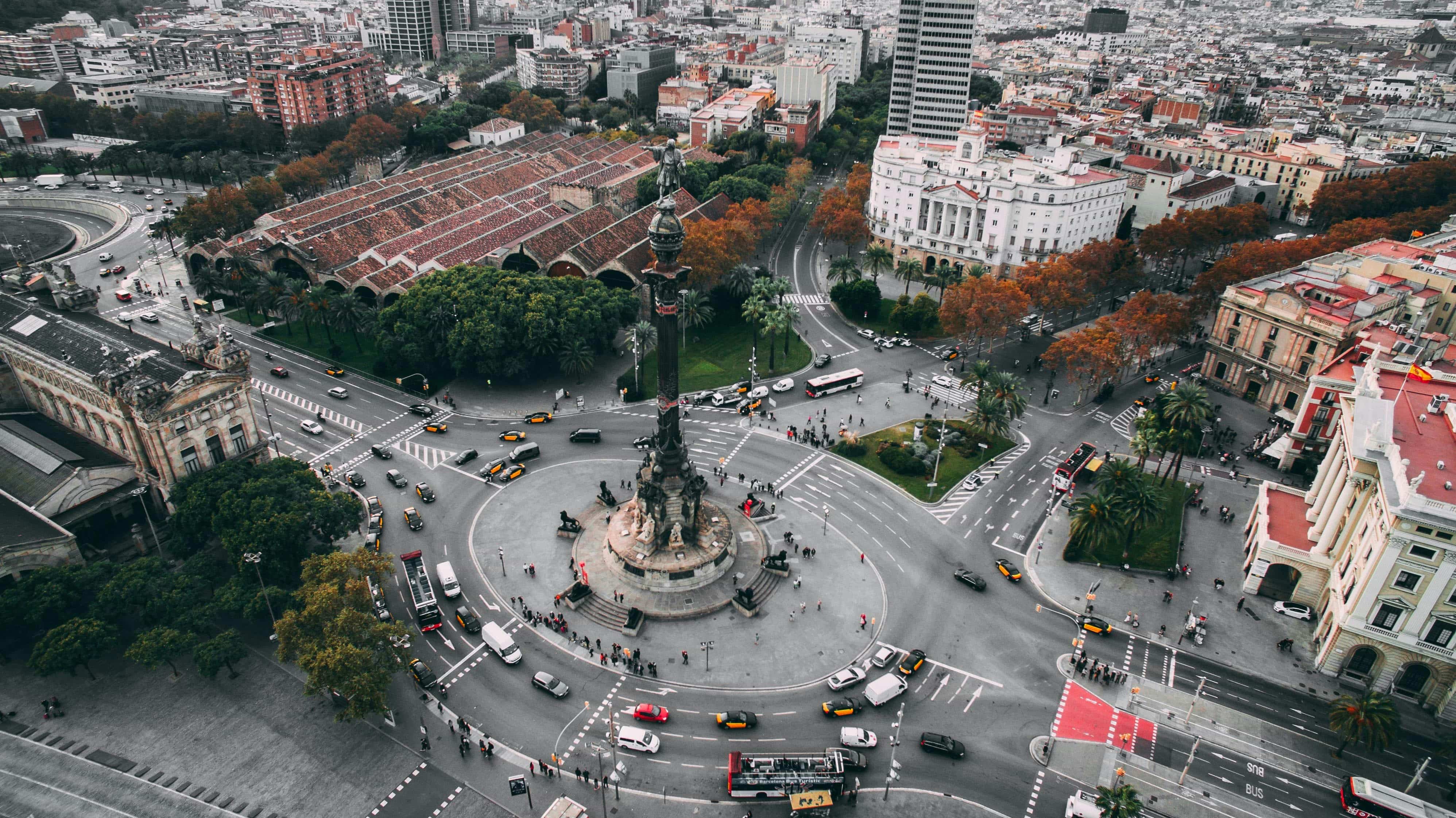
Cost of Living in Barcelona
2024-07-07
Barcelona, located in northeastern Spain, offers a Mediterranean lifestyle with a growing economy centered on tourism, IT, and manufacturing. Work permits for non-EU nationals can be bureaucratic, while job opportunities are concentrated in IT and biotechnology. The cost of living varies, with high housing prices in the city center but affordable groceries and transport. Public healthcare is accessible, but private insurance may be needed. Expats enjoy Barcelona's vibrant social scene, international schools, and good public transportation system. Crime rates are low, though pickpocketing is an issue.
Introduction to Barcelona
Barcelona, located in the northeast of Spain, sits on the Mediterranean coast. Known for its beautiful beaches and iconic architecture, it is one of Spain's most vibrant cities. The climate is Mediterranean, with hot, dry summers and mild winters.
Economy and Employment
Barcelona's economy thrives on tourism, manufacturing, and services. Key sectors include IT, pharmaceuticals, and fashion. Major employers range from tech giants like Amazon to local powerhouses such as CaixaBank. However, Spain faces economic challenges, including high unemployment rates and wage stagnation. The economy is gradually recovering, but opportunities remain limited compared to other European cities.
Immigration Requirements
To work in Spain, non-EU nationals need a work permit, usually tied to a job offer. The process can be bureaucratic and slow. Residence permits are necessary for longer stays and can be obtained after acquiring a job. EU nationals enjoy easier access due to EU labor mobility agreements.
Job Market and Opportunities
Barcelona has a growing demand for professionals in IT, digital marketing, and biotechnology. Salaries in Barcelona tend to be lower than in Northern Europe, but the cost of living offsets this somewhat. The work culture in Spain places importance on a healthy work-life balance, with many businesses still practicing siestas. Career advancement depends on experience and industry, but it’s slower compared to the UK or Germany.
Cost of Living
Barcelona's cost of living is relatively affordable for a major European city, but prices are rising. Here's a breakdown compared to other cities:
- Alcohol and Tobacco: Cheaper than in northern European countries.
- Clothing: Affordable, especially from local brands.
- Communication (Internet & Mobile): Fairly priced, but not the cheapest in Europe.
- Education: International schools are expensive.
- Furniture and Appliances: Reasonably priced, especially from local or regional manufacturers.
-
- Groceries: Lower than in most Western European cities.
- Healthcare: Public healthcare is free for residents, but private insurance can be costly.
- Housing: High rents in central Barcelona, cheaper in the suburbs.
- Personal Care: Prices are average, with many affordable options.
- Recreation and Culture: Cultural activities are well-priced; free festivals and low-cost public events abound.
- Restaurants and Hotels: Dining out is affordable compared to Paris or London.
- Transport: Public transport is efficient and inexpensive.
Housing, especially in central areas like Eixample, is the largest expense. On the other hand, public transportation and groceries are cheaper.
Quality of Life
Barcelona is a desirable place to live, with a good quality of life. Its combination of beach, culture, and vibrant social life make it attractive for expats. The city is also well-equipped with modern amenities, international schools, and healthcare services.
Pros and Cons of Living in Barcelona
Pros include the weather, relaxed lifestyle, and affordable cost of living. The downside is high unemployment and relatively low wages compared to other major cities in Europe.
Culture and People
Barcelona is a cosmopolitan city with a mix of Spanish, Catalan, and international cultures. The primary language is Catalan, but Spanish is widely spoken. People are friendly, especially in the expat community, but integrating into local social circles can take time. Traditions, such as the Castellers (human towers) and celebrations like La Mercè, highlight the strong local culture. Norms include respect for siesta hours and late-night dining.
Healthcare
Barcelona has a well-developed healthcare infrastructure, with both public and private options. The public system is free for residents, while private healthcare, though high-quality, can be expensive. Hospitals and clinics are modern, and most doctors speak English. Expats are encouraged to have private health insurance.
Safety and Security
Barcelona is generally safe, though pickpocketing is common in tourist areas. The political situation has been stable since the peak of Catalonia's independence movement in 2017. The city has efficient emergency services and low risks of natural disasters.
Residential Areas
Popular areas for expats include Gràcia, Eixample, and Poblenou. These neighborhoods offer a mix of local flavor, modern amenities, and proximity to international schools.
Education
Barcelona has several international schools, offering curricula such as the International Baccalaureate (IB) and British A-levels. School fees can be steep, especially in private international institutions. Local schools teach Catalan, which may pose a challenge for newcomers.
Social and Recreational Life
Barcelona’s social scene is lively, with endless dining options, bars, clubs, and cultural activities. The city has excellent sports facilities, from football to tennis, and is home to numerous community groups and expat clubs. Cultural events, concerts, and outdoor festivals happen throughout the year.
Transportation
Public transportation in Barcelona is reliable, with an extensive metro, bus, and tram system. Traffic can be congested, but many expats choose to bike, given the city's well-developed cycling infrastructure. The city is also well-connected by air to Europe and beyond, making travel convenient.
Unique Aspects
Barcelona's distinct blend of Catalan culture and modern European city life sets it apart. The city’s Gaudí architecture and UNESCO World Heritage Sites make it one of the most visually unique cities in the world.
Overall Cost of Living
Barcelona offers a relatively affordable cost of living compared to other European cities, especially outside the city center. While housing can be expensive, groceries and public transportation are good value.
Use Xpatulator’s Cost of Living Calculators and Tools for informed decision-making about the cost of living in Barcelona and the salary/allowance/assignment package required to maintain your current standard of living.